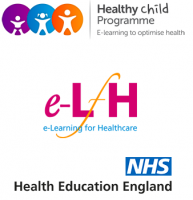Helping to Reduce Neonatal and Infant Death course



This session explores current understanding of infant mortality and the health promotion approaches available to improve the neonatal and infant death rate.
Learning objectives
By the end of this session you will be able to:
- Describe the epidemiology of infant mortality in the UK (causes and prevalence)
- Outline the evidence base for prevention (what do we know and what can we do about it)
- Suggest how infant health can be optimised in different settings
This session explores current understanding of infant mortality and the health promotion approaches available to improve the neonatal and infant death rate.
Before commencing this session you should complete the following AH session:
- Basic Principles of Health Promotion (402-0058)
TM has been a midwife for 20 years and has worked in various health settings that include the UK, Africa and Central Asia. She is currently Consultant Midwife for Normal Birth at North West London Hospitals NHS Trust; this role includes providing clinical leadership, research audit and service evaluation, and education with staff development.
She is driven by the belief that midwives should be empowered so that they can empower the women that they are caring for in order to achieve the best health outcomes, be the best parents possible and make the most out of their child birth experience.
Being curious minded she has published and is currently working on research topics that cover provision of vitamin D in pregnancy, management of blood pressure, obesity, third and fourth degree tears and change management.

- Radiology – Integrated Training Initiative (R-IT...
- Posted By eIntegrity Healthcare e-Learning
- Posted Date: 2025-01-10
- Location:Online
- This session reviews which chambers contribute to the ‘normal cardiac outline’ and examines how specific chamber enlargement or absence alters the normal cardiac shape. It will describe the different diagnoses, which result in characteristic
- Radiology – Integrated Training Initiative (R-IT...
- Posted By eIntegrity Healthcare e-Learning
- Posted Date: 2025-01-10
- Location:Online
- This session provides an overview of the clinical manifestations of haemangiomas, lymphatic and vascular malformations, their radiological work-up plus typical imaging findings.
- Radiology – Integrated Training Initiative (R-IT...
- Posted By eIntegrity Healthcare e-Learning
- Posted Date: 2025-01-10
- Location:Online
- This session covers imaging and diagnosis of paediatric mediastinal masses, and is organised based on their location in the mediastinum.
- Radiology – Integrated Training Initiative (R-IT...
- Posted By eIntegrity Healthcare e-Learning
- Posted Date: 2025-01-10
- Location:Online
- This session discusses radiographic anatomy of the normal mediastinum and its compartments containing different structures and why this is useful when interpreting an abnormal image. The silhouette sign and how it is used to localise a mass on chest radio
- Radiology – Integrated Training Initiative (R-IT...
- Posted By eIntegrity Healthcare e-Learning
- Posted Date: 2025-01-10
- Location:Online
- The session looks at pneumothorax, pneumomediastinum, air leaks in neonates, air leaks in older children and post-traumatic air leaks.








